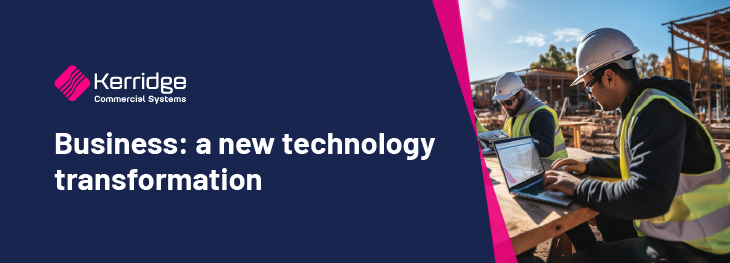
With the growing use of robotic process automation, the deployment of software (robots) that emulate human action, businesses can automate repetitive tasks and free up valuable time for critical activities.
Ecommerce has also changed how products are sold, with many businesses now deploying websites that enable them to sell their goods online as well as in-store. However, those that deploy an integrated platform that acts as an extension of their business system see not only a tremendous benefit in increased sales, but also in providing customer self-service options. Customers can easily access order and product details, check availability, and choose between click-and-collect or home delivery. By providing online tools for order tracking and query resolution, businesses improve service quality and enhance efficiency, enabling customers to resolve issues quickly.
The rising use of mobile apps in business IT ecosystems is a notable trend. These apps enable employees to ‘take the technology to the job’, allowing for immediate results instead of relying on capturing results on paper and updating systems later.
For example, remote salespeople can place orders on the go, making orders instantly ready for processing. Apps like ePOD also help delivery drivers confirm deliveries by capturing signatures and images. Additionally, immediate access to these electronic documents in K8 facilitates quick resolution of customer disputes. It allows for correcting any delivery issues before drivers return to the yard.
We've seen a significant rise in demand for our apps that take orders, book in goods, picking, and other operational tasks this year. Our customers value the efficiencies our user-friendly apps provide, allowing instant access to essential tasks and immediate updates to the K8 system. Errors are quickly reported to the right staff, ensuring swift resolutions and great service.
James Mitchell, Managing Director of KCS in the UK and Ireland
Our digital solutions streamline the matching of supplier invoices, removing the need for expensive EDI technology. When an invoice arrives via email, the system processes it automatically, with any issues flagged for attention.
James adds, 'We embrace digitalisation across industry. Our continuous innovation aims to enhance customer service and drive efficiencies. With artificial intelligence (AI) advancements within our products, we are excited about the future.'
What is AI technology and what benefits does it bring to business?
AI technology offers significant benefits for businesses, and it's not only through areas such as marketing. Applications can recommend appropriate products, and algorithms can assess the impact of climate and economic factors on customer purchasing decisions, adjusting supplier orders accordingly. Businesses can optimise stock levels as a result and reduce the working capital tied up in inventory.
To illustrate the main concepts of AI, think of a vast data pool called a "Data Lake". Large Language Models (LLMs) use complex algorithms to interpret this data and uncover patterns, with responses to questions being provided in clear and concise English.
For perspective, one gigabyte of data contains about 170 million words, and these models can process multiple petabytes of data at once. Considering that one petabyte contains over one million gigabytes, it's clear that such technology holds immense power for business.
James Mitchell states, 'AI is central to our development programme, and we're excited about the opportunities it offers our customers. Our teams are actively collaborating with industry groups in the construction, automotive, electrical sectors, and more to standardise product catalogues, enhancing opportunities for our clients.'
'For instance, our automotive division's catalogue, Autocat, features over two million products and is essential for locating vehicle parts. We've developed software that allows users to send a picture of a part via WhatsApp to check its price and availability for a specific car registration.
'The software matches the image to the relevant part, presenting options to the user. They can ask questions about specifications or compatibility, which are answered instantly. Users can then place orders electronically.
Getting in the cloud – the importance of security and scalability
Businesses are increasingly vulnerable to sophisticated cyber-attacks, especially as cybercriminals leverage AI. Data security is crucial, and choosing a reputable ERP provider will ensure best practices in data authentication, access control, and encryption.
'At KCS, all our solutions are available as SaaS in the Cloud,' says James Mitchell. 'This offers our customers enhanced data protection and real flexibility in their work. Fully certified for security and quality, our customers can easily increase capacity. Cloud technology will be critical to businesses as they take advantage of the new technologies.'
'From your ERP software to your web presence, finance and accounting, optimising your systems and processes through digitalisation and AI strengthens your business and improves customer service,' James concludes. 'Choosing the right partner to provide the digital and other innovative solutions you need in a secure environment is critical to growing your business in 2025 and beyond!'